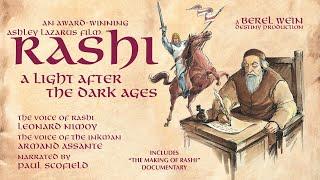Problems playing the video? Click Here to reload
Watch Videos: Random | New | Popular
All Essays | Report Video
|
Share Video
- Buy Us a Coffee -
Rabbi YY Jacobson
Many people get lost in life -- in aggression, passivity, or treachery. But some can’t figure out where they are lost
For Source Sheets: http://www.theyeshiva.net/jewish/75
"You shall not see your brother’s ox or his sheep go astray and ignore them; return them to your brother... So shall you do with his ass, so shall you do with his garment, and so shall you do with every lost thing of your brother... -- Deuteronomy 22:1-3 " "Obviously, the duty to return a lost object to its owner is not limited to oxen, sheep, asses and garments, but applies—as the verse concludes—to “every lost thing of your brother.” The Talmud explains that the Torah cites these examples because each of them teaches us another of the laws regarding lost objects. However, while it deciphers the laws to be derived from “ox,” “ass” and “garment,” it does not succeed to do so in the case of the “sheep.” “The lost sheep is a difficulty,” it concludes the Talmud, meaning that the legal significance of the word “sheep” in the verse proved difficult for the sages. " "Accordingly, the mitzvah of returning a lost object applies not only to the physical property of one’s fellow but to his spiritual possessions as well. If you encounter a life gone astray—a confused mind, a dysfunctional heart, a soul that has lost its moral compass or spiritual sensitivity—restore it to its owner. You may not remain indifferent to the spiritual plight of a brother any more than you may ignore his wayward ox. " "The Zohar tells us that the Torah has both a body and a soul. The “body” of the Torah is its “physical” part—the historical events it recounts and the laws it legislates. But implicit in this body is a “soul,” a mystic dimension in which every story has its sublime analogy and every legal nuance its spiritual counterpart." "Specifically, the four examples of “lost objects” enumerated by Torah correspond to four prototypical maladies of the human soul. Join us on a fascinating journey into the psychology of aggression, passivity, treachery and meekness. "
in english
Many people get lost in life -- in aggression, passivity, or treachery. But some can’t figure out where they are lost
For Source Sheets: http://www.theyeshiva.net/jewish/75
"You shall not see your brother’s ox or his sheep go astray and ignore them; return them to your brother... So shall you do with his ass, so shall you do with his garment, and so shall you do with every lost thing of your brother... -- Deuteronomy 22:1-3 " "Obviously, the duty to return a lost object to its owner is not limited to oxen, sheep, asses and garments, but applies—as the verse concludes—to “every lost thing of your brother.” The Talmud explains that the Torah cites these examples because each of them teaches us another of the laws regarding lost objects. However, while it deciphers the laws to be derived from “ox,” “ass” and “garment,” it does not succeed to do so in the case of the “sheep.” “The lost sheep is a difficulty,” it concludes the Talmud, meaning that the legal significance of the word “sheep” in the verse proved difficult for the sages. " "Accordingly, the mitzvah of returning a lost object applies not only to the physical property of one’s fellow but to his spiritual possessions as well. If you encounter a life gone astray—a confused mind, a dysfunctional heart, a soul that has lost its moral compass or spiritual sensitivity—restore it to its owner. You may not remain indifferent to the spiritual plight of a brother any more than you may ignore his wayward ox. " "The Zohar tells us that the Torah has both a body and a soul. The “body” of the Torah is its “physical” part—the historical events it recounts and the laws it legislates. But implicit in this body is a “soul,” a mystic dimension in which every story has its sublime analogy and every legal nuance its spiritual counterpart." "Specifically, the four examples of “lost objects” enumerated by Torah correspond to four prototypical maladies of the human soul. Join us on a fascinating journey into the psychology of aggression, passivity, treachery and meekness. "
in english
- Category
- Devarim-Ki Tetzeh
- Tags
- ki tetzeh
Commenting disabled.
















